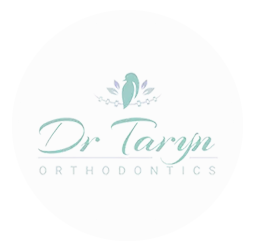Frequently Asked Questions
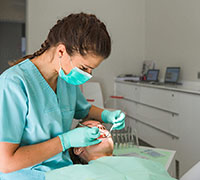
What is orthodontics?
Orthodontics, also referred to as dentofacial orthopaedics, is a specialised field of dentistry focusing on the alignment of teeth and jaws using various orthodontic appliances. It involves the use of special devices, such as braces, clear aligners and additional appliances, to help improve tooth movements. The goal of orthodontic treatment is to improve the function and appearance of your teeth and give you a confident, healthy smile.
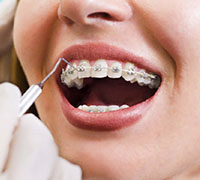
What is an orthodontist?
An orthodontist is a dentist who has received a minimum of four years of additional training and experience. Your orthodontist can straighten teeth, correct misaligned jaw structure, and improve the function and aesthetics of your smile.

What are the benefits of orthodontic treatment?
Orthodontic treatment can provide numerous benefits beyond just straightening your teeth. For example, when your teeth are jaws are misaligned, it can increase your risk of tooth decay and gum disease, cause headaches and jaw pain, and make eating, speaking and chewing difficult. At the same time, it can heavily affect your self-esteem.
With orthodontic treatment, we can correct these issues and give your straight, healthy teeth, leading to improved oral health and a significant confidence boost!
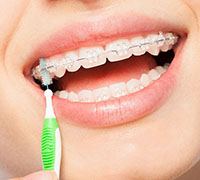
When is the best time to visit the orthodontist?
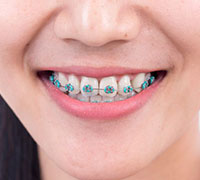
Are there any risks with orthodontic treatment?
As with all procedures, there are minor risks involved with orthodontic treatment. However, these can be managed with proper care and attention. These risks include tooth decay and gum disease. With proper oral hygiene and regular dental check-ups, you can minimise these risks. We will thoroughly inspect your teeth during treatment check-ups, ensuring we catch any signs of tooth decay early to prevent it from becoming severe.
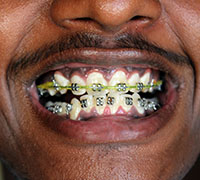
What is the cost of orthodontic treatment?
The cost of orthodontics varies depending on each patient's unique case and the type of treatment received. For more information on our orthodontic treatment rates, please contact our office.
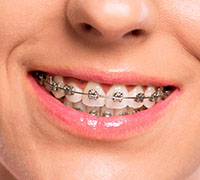
What are braces?
Bracesare orthodontic devices made up of metal brackets and archwires that fit onto the front or back of your teeth. Over time, your orthodontist will tighten the wire, slowly encouraging your teeth to move into the desired position. Braces provide your teeth with a path that allows optimal bite and tooth placement, creating a healthy, beautiful smile.
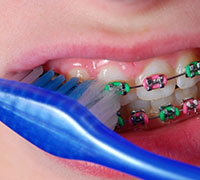
What are the different types of braces?
There are several types of braces available, including:
- Traditional metal braces
- Ceramic braces
- Lingual braces
- Damon braces
Each type of brace has its own benefits and drawbacks, and we will help you determine the best option for you based on your unique needs and preferences.
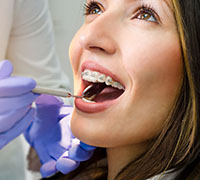
How long does orthodontic treatment take?
The length of your orthodontic treatment will vary depending on your individual case. Each smile responds differently to treatment, so it can take anywhere between 6 and 30 months.

Are braces worth it?
Orthodontics will always be worth the investment! Not only do they straighten your teeth, but they also reduce your risk of developing oral health complications such as cavities. They are a pretty great confidence boost too!
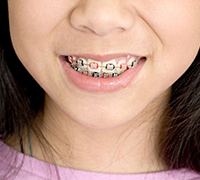
Does orthodontic treatment hurt?
Orthodontic treatments like braces don't hurt but may feel slightly uncomfortable for the first few days after application. It will take some time to get used to the feel of them in your mouth, but after a while, you will barely notice them.

How can I care for my teeth if I wear braces or a retainer?
- Always brush your teeth after every meal and floss at least once a day.
- Use fluoride toothpaste, and ask your orthodontist or family dentist if you need a fluoride rinse. This will help prevent cavities!
- If you take out your retainer to eat, brush your teeth, floss, and remember to keep it safe in its container so that it does not get lost or broken.
- Clean your retainer by brushing it with a toothbrush and toothpaste. You can also use denture cleaner if recommended by the orthodontist. Never put your retainer in boiling water or the dishwasher.
- During your treatment, try to avoid foods with a lot of sugar, which increases the number of bacteria in your mouth, causing more plaque and possibly cavities.
- Avoid sticky and chewy foods (caramel, chewing gum, gummy bears), hard foods (hard candy, nuts, ice cubes), or any foods that could get stuck in your braces (corn on the cob, soft bagels, ribs, toffy, etc.).
- Be sure to schedule your routine check-ups with your family dentist. It is recommended that you continue to visit the dentist every six months.
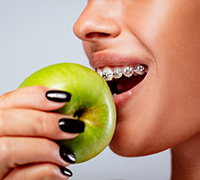
What foods should I avoid eating with braces?
Certain foods can damage your braces' hardware, so you should generally avoid sticky, hard, or chewy foods. Some examples include popcorn, gum, and toffee candy. We also recommend cutting up hard fruit like apples before eating them, especially when fitted with your permanent retainer. This will prevent it from bending, breaking, or causing discomfort.
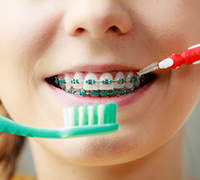
Do I need to brush my teeth more often if I have braces?
Braces can make brushing more difficult since they provide bacteria with more hiding places, so the more you brush, the better!
You should also floss daily to get in between your braces and teeth, which your brush can't reach. During your appointment, Dr Taryn will show you how to properly brush and floss once your braces are placed.
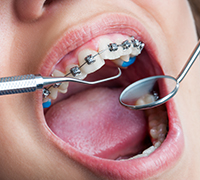
Do I still need a dental check-up every 6 months with braces?
Absolutely — with braces, it's common for food to get caught in difficult-to-reach places. This can lead to cavities, tooth decay and gum disease. So, it's more vital that you visit the dentist regularly.

Will my braces interfere with school activities like sports, playing an instrument, or singing?
Playing an instrument or a contact sport may require some adjustment when you first get your braces, but wearing braces will not stop you from participating in any of your school activities. If you play a contact sport, it is recommended that you wear a mouthguard to protect your braces or appliance.

Do you have to wear a permanent wire after having braces?
In some cases, yes. This will depend on the type of orthodontic treatment you've had, for how long, and where. The wire is considered a permanent retainer curved to fit the shape of your newly straightened teeth. It is often fitted to your lower teeth and prevents them from moving. It may take some time to get used to, but most patients barely notice it after a while.
In other cases, we use plastic retainers worn at night to keep your teeth from shifting after receiving orthodontic treatment.
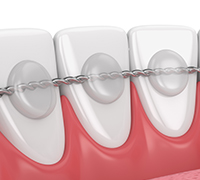
What happens after my braces are removed?
Once your orthodontic treatment is complete and your braces are removed, you will either receive a permanent wire, a retainer, or both. This will help prevent your teeth from shifting back to their original positions. Dr Taryn will explain each option, which is best for your case, and how to care for your wire or retainer.

How do I schedule my next appointment?
Simply give us a call or pop us an email. Our friendly team will happily assist you with scheduling your appointment at your convenience. If you are a new patient, let us know, and our front desk staff will give you everything you need to set up your consultation.
